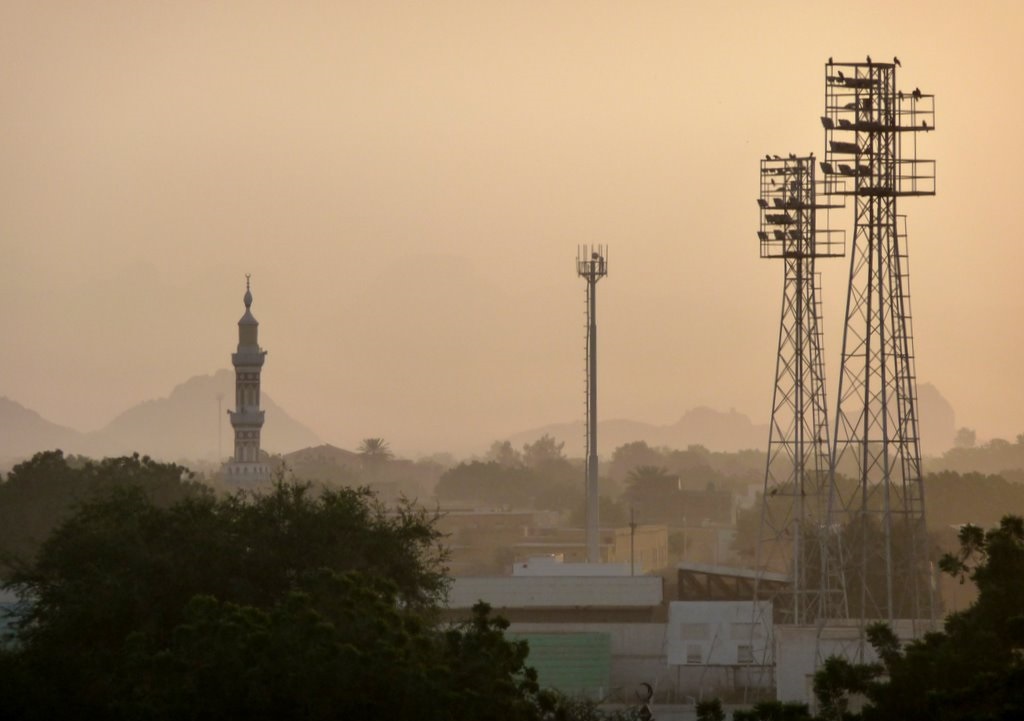Eastern Sudan: Angry responses to former GIS director’s ‘racist remarks’

Kassala before the war (File photo: Peter Bury / Creative Commons)
Massive demonstrations took place in eastern Sudan over the weekend, denouncing the statements of Retd Maj Gen Badreldin Abdelhakam, former director of the General Intelligence Service (GIS) in Kassala, broadcast by the Sudanese radio on Friday, in which he described three former eastern Sudanese officials as Eritrean nationals, demanding their citizenship be withdrawn. The Tagadom alliance and prominent Sudanese warned that the statements ‘aim to divide the various communities in eastern Sudan’.
The three former eastern Sudanese officials belong to the Beni Amer, a Beja tribe living along the border with Sudan and Eritrea and whose members are Sudanese or Eritrean nationals.
Although a delegation from the Sudanese Radio travelled to Kassala and offered an official apology to the Beni Amer, the move was apparently not sufficient to bring down the anger and tension that were not limited to the Beni Amer but affected several social groups in eastern Sudan, Abdelaziz writes.
Among those groups is the youth secretariat of the El Halanga, a tribe, like the Beni Amer, belonging to the large Beja population living in north-eastern Sudan. The El Halanga Youth Secretariat denounced “the nonsense” broadcast by the Sudanese radio in a statement on its Facebook page.
The secretariat described Abdelhakam’s statements as “a great opportunity to unite the eastern Sudanese against the instigators of strife who do not want us to settle in our beloved East”.
The statement also affirmed the El Halanga’s “solid stance with the youth of the Beni Amer and the El Habab in any event or action aimed at prosecuting these riot-provokers who want to destroy and tear our social fabric”.
National radio
Sudan’s Civil Democratic Forces alliance (Tagadom) residing in Addis Ababa, strongly denounced the speech of the former Kassala GIS director as it “provokes strife among the local communities in eastern Sudan”.
In a statement on X yesterday, Tagadom, chaired by former PM Abdalla Hamdok, said that “such rhetoric that already caused sedition before the April 15 War, is now fuelling the continuation of the violent conflict and expanding its scope”.
The alliance called on “all Sudanese throughout the country, and in eastern Sudan in particular, not to respond to statements spreading hatred, racism, and ethnic division in anger, but to confront such talk with social and civil society initiatives”.
‘It was the Sudanese radio, supposed to be neutral, that broadcast the racist statements, which increased the discontent, anger, and tension during the past few days’ – Rasha Awad
Tagadom spokesperson Rasha Awad also denounced the statements on her Facebook page. She in particular expressed her concern that “the platform from which those reprehensible words were launched was not partisan, nor social media, nor anything like that. Rather, it was the Sudanese radio, supposed to be neutral, that broadcast the racist statements, which increased the discontent, anger, and tension during the past few days.”
The Kassala branch of the Sudanese Congress Party, a prominent member of Tagadom, noted that Abdelhakam’s statements belong to “the usual practices of the security services of the former [Al Bashir] regime, which aimed to create strife, disputes and clashes between the communities in the various regions of Sudan”.
Such statements “are exploiting the already severe polarisation in the state, created by war discourses in the media directed by elements of the former regime who want to drag the country into a state of war of all against all.”
The United Unionist Party, also member of Tagadom, considers Abdelhakam’s statements “racist”. They “clearly reveal the distorted security mentality and doctrines instilled within the employees of that agency [security apparatus]”.
The party called on “all Sudanese to adhere to their national unity and unified national feeling in the face of the plan of the former [Al Bashir] regime and its allies, aiming to fragment the unity of our soil”.
‘Planned’
Journalist and political analyst Feisal Mohamed Saleh, who was minister of information during the government of PM Abdalla Hamdok (2019-2021), commented by saying that the statements of Abdelhakam “cannot be considered a coincidence or an unintended matter, but rather as part of a plan to cause unrest in the region.”
He told Radio Dabanga correspondent Omar Abdelaziz yesterday that “Abdelhakam is not only a journalist and political commentator, but he served as GIS director in Kassala during one of the tensest periods in this state witnessing tribal conflicts”.
Mohamed El Faki, former member of the Sovereignty Council, agrees with Saleh. “The plans to cause unrest in the east of the country (now began) with statements of a former director of the security apparatus in Kassala,” he wrote on his Facebook page.
Abdelhakam “is fully aware of the seriousness of this talk and its consequences, so what he said seems to be calculated and should be considered as a message to several parties, the most important of which is the military in eastern Sudan, warning them not to opt for a political solution to stop the war”.
Retired
The angry reactions to the statements do not concern Abdelhakam only, but also denounce the entire security apparatus, which prompted the GIS to disavow his statements yesterday afternoon.
The GIS statement said that as Abdelhakam is retired from service, “all the opinions and statements he issues only express his personal point of view,” adding that “the weak-minded then traded and outbid his recent statements”.
Furthermore, the intelligence service stated that it is “aware of the roots and long history of the Beni Amer tribe in Sudan,” and that it “rejects any trend that might incite racial and regional tensions.”











 and then
and then